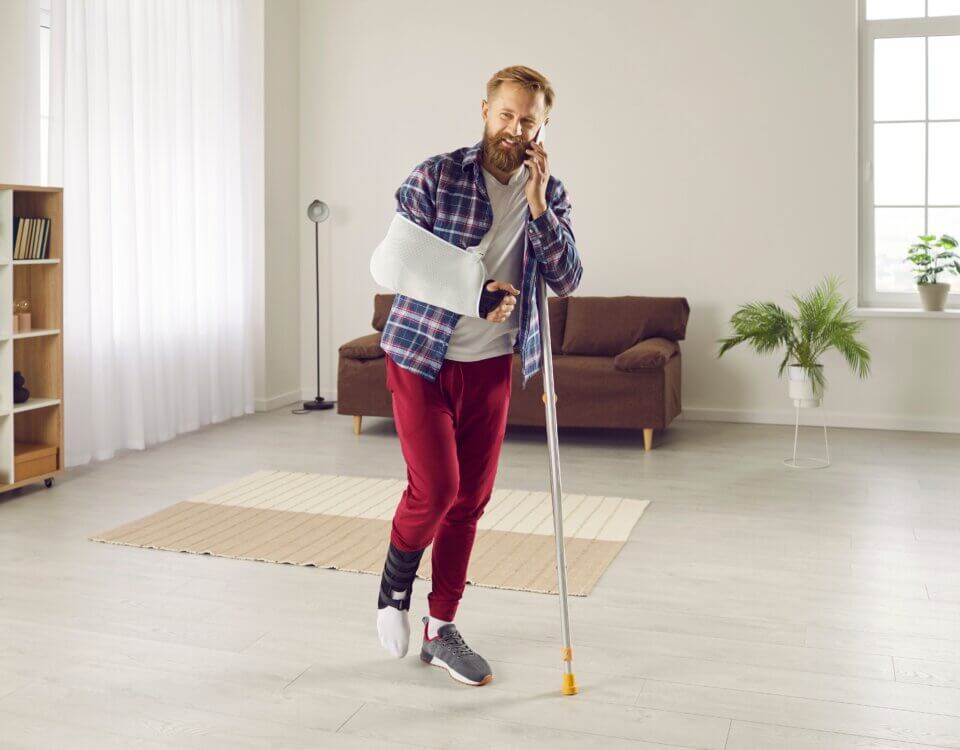Breaking or seriously injuring your hip can change everything in an instant. Whether it’s from a car crash, fall, or other accident, a fractured hip often means major surgery, a long recovery, and many questions, one of the most urgent being: when can I safely get back behind the wheel? At Hillstone Law we have helped many clients with hip injuries; while every case is different, there are common factors that many people should take into account.
Why Hip Injuries Are Especially Serious
Hip fractures happen in many different situations such as wrecks, side impacts, bike accidents, slips or falls at business premises or on uneven ground. The impact is often severe: hospitalization, surgery, physical therapy, and a recovery period that affects mobility. The injury is not just physical, it carries emotional, mental, and financial burdens when someone cannot move freely or get back to their daily routines.
Types of Hip Injuries and Surgery
Not all hip injuries are the same. The type of fracture or damage will determine recovery time and when driving becomes safe:
- Femoral neck fractures often need screws or pins, sometimes partial hip replacement
- Intertrochanteric fractures generally require surgical hardware and longer physical therapy
- Acetabular fractures involve damage to the hip socket and often call for more complex surgery
- Hip dislocations can be very painful and may lead to recurring issues if not managed properly
Each of these injuries carries a different timeline for healing and regaining strength, flexibility, and control.
What Impacts How Soon You Can Drive Safely
These are the key factors that affect when driving can be considered safe after hip surgery:
- Which leg was operated on
- Whether you are using assistive devices like walkers, crutches, or a cane
- How strong and mobile the hip is, including range of motion, stability, and pain levels
- Whether you are still taking pain medication or other drugs that could impair reflexes, reaction time, or judgment
- Your surgeon’s instructions and physical therapy progress
In many cases, people can begin driving again around 6 to 12 weeks after hip surgery, depending on these factors, and only after medical clearance.
Why Your Case Value May Depend on Recovery Time
The inability to drive can deeply affect a person’s life: missing work, loss of independence, challenges managing daily tasks, and emotional stress. These impacts factor into how injury claims are valued. Damages may include costs for:
- Medical care, physical therapy, and assistive devices
- Modifications you may need in your home or transportation
- Pain and suffering, loss of enjoyment of life, and emotional trauma
- Loss of income or increased transportation costs
Insurance companies may try to minimize claims by ignoring likely future needs or long term loss of mobility, so it is important to capture all effects of the injury.
Does It Matter How the Injury Occurred?
Yes. Whether your hip injury came from a car crash, slip and fall, or other accident matters in terms of who is responsible, what proof is needed, and how compensation is pursued. Cases vary in liability, whether a property owner was negligent or another driver was at fault, and that shapes how the claim is built.
What You Should Do Before Accepting Anything
Do not sign any settlement or agree to accept anything until you are sure about what future recovery looks like. What seems like a fair offer early on may fail to account for long term care, delayed complications, or loss of quality of life. A knowledgeable personal injury attorney can help you assess what full compensation looks like.
How Hillstone Law Helps
At Hillstone Law we help injured clients by:
- Working with medical experts to understand your specific injury and recovery timeline
- Documenting all your losses, present and future, including loss of driving ability
- Negotiating with insurance companies to include long term care, pain, suffering, and emotional impact
- Ensuring you are not pressured into early or unfair settlements
If you or someone you care about is recovering from hip surgery after an accident, get a free evaluation from Hillstone Law. We can help you understand when driving may be safe again and fight to get you the full compensation you deserve.
Note: These blog posts are created solely for the use of Hillstone Law. The information is gathered from internet research, publicly available sources, and artificial intelligence (AI) tools such as ChatGPT. While we aim to share helpful and educational content, Hillstone Law does not independently verify every detail. Some information may be incomplete, outdated, or subject to change without notice. If you believe any part of a post is inaccurate, misleading, or infringes upon copyright, please contact Hillstone Law immediately so we can review it and take appropriate action, including correction or removal.
Disclaimer: The material provided in these blogs is for general informational purposes only and should not be considered legal advice. Reading these posts does not create, and is not intended to create, an attorney-client relationship with Hillstone Law. Our intent is to share knowledge, raise awareness, and provide helpful resources to the public; however, Hillstone Law makes no warranties or guarantees about the accuracy, completeness, or reliability of the information provided, and expressly disclaims liability for any actions taken in reliance on it. The photos used in these posts are for illustrative purposes only and do not depict actual clients, individuals, or incidents unless expressly stated. If you or a loved one has been injured in an accident, please contact Hillstone Law at (855) 691-1691. Our attorneys are available to answer your legal questions and help you understand your rights.







